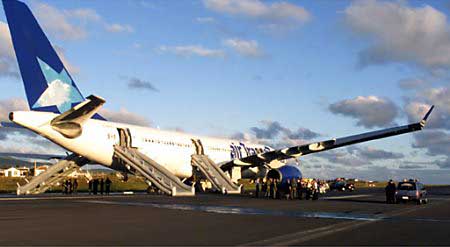
A Hamilton psychologist is using the near-death experience that she and more than 300 other people shared on a flight to Europe 13 years ago as a window into the effects of post traumatic stress disorder.
Margaret McKinnon was among 293 passengers and 11 crew that escaped what most of them believed was certain death when all the fuel leaked out of the Air Transat A330 over the Atlantic. Pilots Robert Piche and Dirk de Jager dead sticked the aircraft into an emergency airfield in the Azores and there were no serious injuries.
But the 25 minutes the occupants of the aircraft had to contemplate their fate had a profound effect on the future course of their lives and some of them ended up being diagnosed with PTSD.
McKinnon involved herself and 14 other passengers, half of whom were diagnosed with PTSD, in the study to probe the long-term impact of believing with certainty that death was imminent and being spared at the last minute.
The study determined that it’s not the memory of the incidents that causes PTSD but the way in which the memories are processed by the brain.
McKinnon was diagnosed with PTSD shortly after the incident but said she was fortunate to receive treatment.
“It’s important to intervene as soon as possible with as much care as we can offer,” she said.
